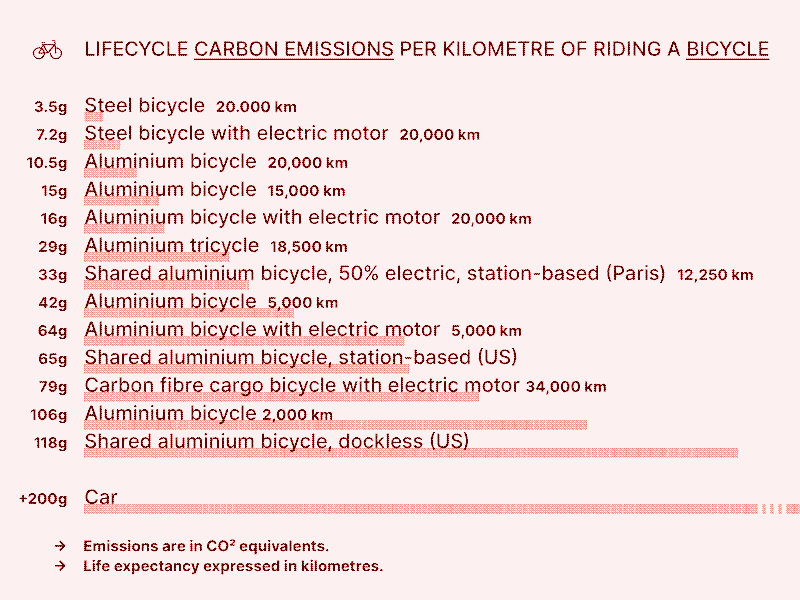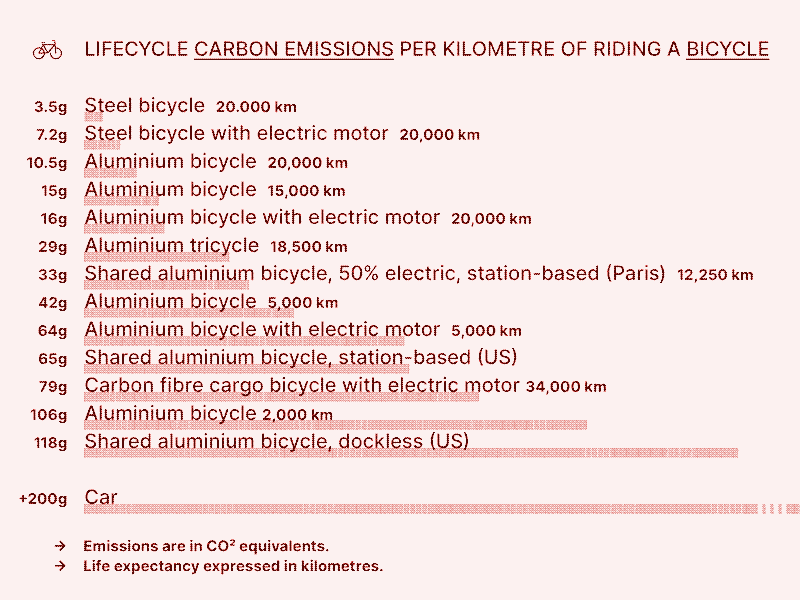I can't help but feel like this is thinking way too far ahead. It feels to me that society has to get people into riding bicycles as an option before even thinking about refining the processes around building bicycles. A big factor of lifecycle (heh) assessment is the amount of usage you get out of a given produced object before it becomes necessary to replace. Making the option to ride the bike easier, more accessible, more inviting is how you make bicycles more sustainable.
re: carbon fiber cargo bike emissions
Clearly there needs to be more studies because this feels like very narrow view of cargo bikes especially when the market for consumer cargo bikes is largely occupied by Urban Arrow (aluminum), Riese & Muller (aluminum), Larry vs Harry (Aluminum), and many more that construct cargo bikes out of aluminum or steel. Just looking at some commercial models of cargo bike it seems like for the most part those are made from aluminum as well. I believe that Urban Arrow offers models for businesses.
edit:formatting

